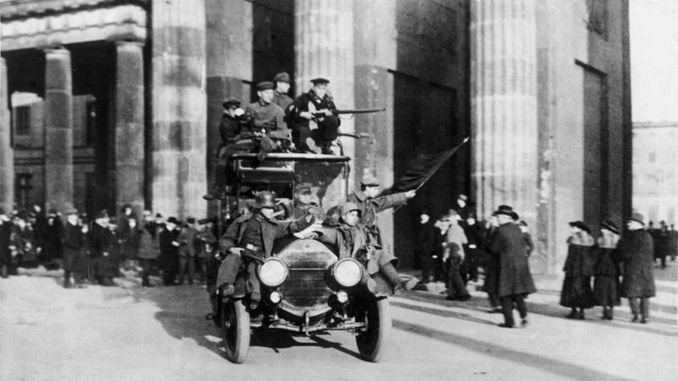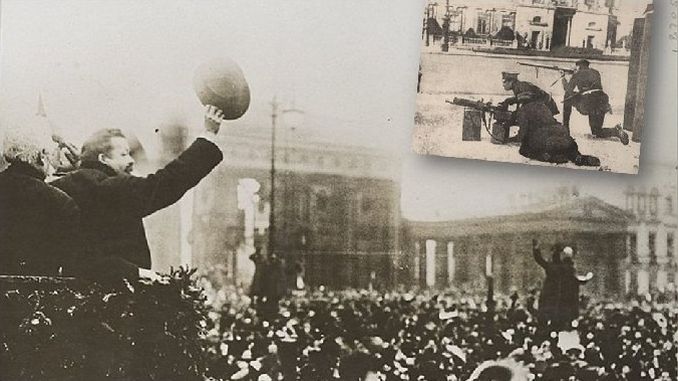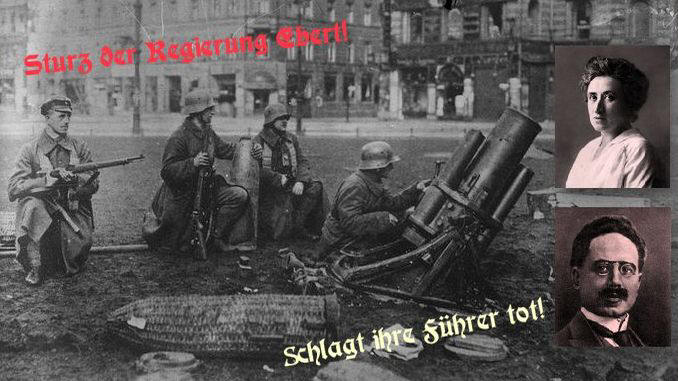
Germany, 1918: The war was lost, there was hunger and need everywhere, millions of soldiers had perished in battle. The mood swung against the Kaiser. In Russia, the Bolsheviks had seized power and finally killed the Tsar and his family. The multi-ethnic Austria-Hungary was falling apart. A German Revolution would do away with the Kaiser and the Hohenzollern Monarchy.
The High Command had urged Kaiser Wilhelm to ask for an armistice. US President Woodrow Wilson would not negotiate with the Kaiser’s generals, so they had cynically suggested a “democratization from above”. The democratic politicians should be held responsible for all the hardships and blames to come. By the “October reforms”, Germany had become a constitutional monarchy. The chancellor, Max von Baden, was responsible to the Reichstag.
Sailors’ mutiny
Nonetheless, the military commanders ordered, by their own authority, the navy in Kiel to set sail for a last battle against the British Royal Navy. In the eyes of the sailors, however, it was a voyage into their certain death, and they refused to follow this order. Mutinies occurred in the marina cities Kiel and Wilhelmshaven. Already at the beginning of November, the revolts spread to other cities and states. Nearly everywhere, the German princes abdicated, and workers’ and soldiers’ councils came into being.
Revolution in Berlin
On November 9, 1918, the revolution reached Berlin. Hundreds of thousand were rallying in the city center. Kaiser William II had left the capital days before, he was at the High Command headquarters in Spa, Belgium. Chancellor Max von Baden saw that the situation was out of control. He urged the kaiser to abdicate and save at least the monarchy, but Wilhelm could not make up his mind. Finally, Max von Baden acted on his own judgment. Without authorization, he declared that kaiser Wilhelm II had abdicated. Shortly after, he resigned and made Friedrich Ebert, the chairman of the Social Democrats, f the SPD Chancellor.
Yet, it was too late, and could not calm down the demonstrating crowds. Many of them demanded the total abolition of the monarchy. At noon, the Social democratic members of government Friedrich Ebert and Philipp Scheidemann had lunch in the Reichstag. They saw what was going on, that the Spartacist leader Liebknecht was planning the proclamation of a socialist republic. Scheidemann was convinced that they had to be faster. Since Ebert did not want to, he stepped onto a balcony of the Reichstag at about 2 pm and proclaimed the Republic.
Around the same time in the Tiergarten, Karl Liebknecht proclaimed the socialist republic. In the afternoon he stood on a truck in front of the Berlin City Palace and called on the demonstrators to storm the city palace. Afterwards, from the palace balcony, he again proclaimed the “Free Socialist Republic of Germany” and demanded: “All power to the workers’ and soldiers’ councils!
On November 10, a provisional government came into being, the Council of People’s Deputies with Ebert at the top.

Parliamentarian democracy or Council system?
But what would the republican Germany be? The democratic parties in the political center and the majority of the Social Democrats wanted a parliamentarian democracy, whereas the left-wing parties claimed a council system.
Ebert must have hated being at the top of a revolutionary government. He distrusted the workers’ and solders’ councils and struggled to prevent a social revolution that might lead to a Bolshevik overthrow as in Russia. Today, historians agree that the danger of a Bolshevik revolution was over-estimated. Back then, people were in a state of shock, it was a violent society and no one knew how many Spartacists would take up arms to overthrow the government.
However, a congress of the German workers’ and soldiers’ councils hold in December in Berlin voted against the council system and in favor of elections to a national assembly that should decide about the future state system.

Blood is shed
At the end of 1918, the so far peaceful revolution became bloody. Ebert, in his struggle to avoid a left-wing overthrow at any rate, decided to cooperate with the old elites. He even had military forces march against striking workers and sailors. That alienated a lot of his supporters, and in the eyes of the left wing Socialists made him a traitor.
In January 1919, the government sent Reichswehr troops to crush a left-wing uprising in Berlin. In addition, Freikorps, paramilitary units, moved into Berlin. They brutally cleared several buildings and executed the occupiers according to martial law. The civil war-like situation offered the republic’s enemies in the military the opportunity to settle accounts with their enemies, and this on behalf of the government.
The January revolt claimed 156 lives in Berlin. Some days later, the Spartacist leaders Rosa Luxemburg and Karl Liebknecht were murdered by a Freikorps unit.
Thereafter, political enmity became hatred. In Berlin, Saxony, the Rhineland, and the Ruhr area, general strikes and heavy fighting made the first years of the Weimar Republic almost civil-war-like.
20th century
The short 20th century | The Great War | German Revolution 1918/19 | Occupation of the Rhineland | Weimar Republic | Nazi Germany | World War II | Federal Republic of Germany

Be the first to comment